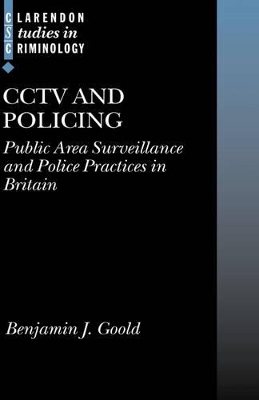Clarendon Studies in Criminology
1 total work
CCTV and Policing is the first major published work to present a comprehensive assessment of the impact of CCTV on the police in Britain. Drawing extensively upon empirical research, the volume examines how the police in Britain first became involved in public area surveillance, and how they have since attempted to use CCTV technology to prevent, respond to, and investigate crime. In addition, the volume also provides a detailed analysis of the legality of CCTV
surveillance in light of recent changes to the Data Protection Act and the incorporation of the European Convention on Human Rights. Challenging many existing accounts of the relationship between the police and new surveillance technologies, CCTV and Policing breaks new ground in policing and surveillance
theory, and argues that it is time for a major reassessment of both our understanding of how the police respond to technological change, and of the role played by such technologies in our society.
surveillance in light of recent changes to the Data Protection Act and the incorporation of the European Convention on Human Rights. Challenging many existing accounts of the relationship between the police and new surveillance technologies, CCTV and Policing breaks new ground in policing and surveillance
theory, and argues that it is time for a major reassessment of both our understanding of how the police respond to technological change, and of the role played by such technologies in our society.
